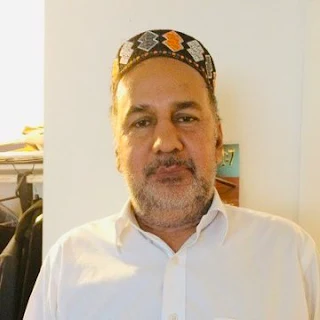Alhamdulillah, Summa Alhamdulillah, I implore God by His most beautiful names and His most sublime attributes, and I thank Him for giving me the blessed opportunity to continue the Friday Sermon series on the duahs of Hazrat Muhammad (pbuh). I am making this effort only by the grace and help of Allah. I also implore Him to enable me to benefit from them both during my lifetime on earth and after my death, and to share it with the people - anyone who reads the sermons on the Jamaat Ul Sahih Al Islam’s website. All praise is to Almighty God [Allah] and we praise and implore His help as well as His forgiveness. Ameen.
As for the Holy Prophet (pbuh), he tells us: “He who remembers his Lord and he who does not remember his Lord are like the living and the dead.” (Muslim)
Anyone who recites a letter from the Book of God will have done a good deed knowing that every good deed is rewarded many times. And I don't mean by letter: Alif-Lam-Mim, because Alif is a letter, Lam is a letter and Mim is a letter. (Tirmidhi)
Now let’s see the duahs which Hazrat Muhammad (pbuh) used to recite:
Allahumma anta Rabbi, Laa Ilaaha Illa anta khalaqtani wa ana abduka, wa ana ala ahdika wa wa’dika maa stata’tu. Audhu bika min sharri maa sana’tu. Abu’u laka bini’matika alayya wa abu’u bi-dhanbi. Faghfir li fa-innahu laa yaghfiru dh-dhunuuba ilaa anta.
O Allah, You are my Lord, none has the right to be worshipped except You; You created me and I am Your servant and I abide to Your covenant and promise as best I can, I take refuge in You from the evil of which I have committed. I acknowledge Your favour upon me and I acknowledge my sin, so forgive me, for verily none can forgive sin except You. (Bukhari)
Allahumma afini fi badani. Allahumma aafini fi sam’i. Allahumma aafini fi basari Laa Ilaaha Illa anta. Allahumma inni audhu bika minal kufi, wal-faqri. Wa audhu bika min adhabil-qabri. Laa Ilaaha Illa anta. [to recite three times]
O Allah, make me healthy in my body. O Allah, preserve for me my hearing. O Allah, preserve for me my sight. There is none worthy of worship but You.
O Allah, I seek refuge in you from disbelief and poverty and I seek refuge in you from the punishment of the grave. There is none worthy of worship but you. (Bukhari, Abu Dawud, Ahmad)
Hasbiy-Allahu Laa Ilaaha Illa huwa alayhi tawakkaltu wa huwa Rabbul arshil azeem. [to recite seven times]
Allah is sufficient for me, there is no Deity except Him. I place my trust in Him and He is the Lord of the great throne. (Abu Dawud)
Whoever recite these words seven times in the morning and in the evening will see God spare him from all the worries that will preoccupy him, both on this earth and in the hereafter.





















